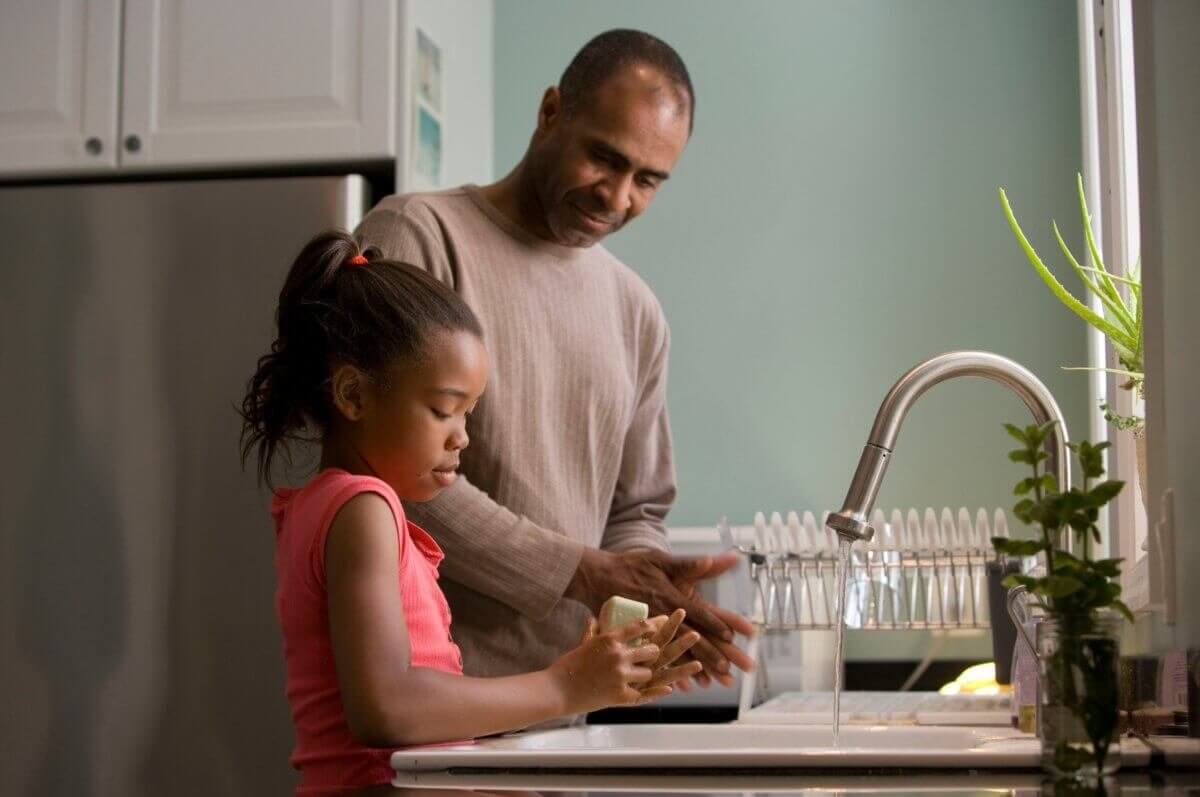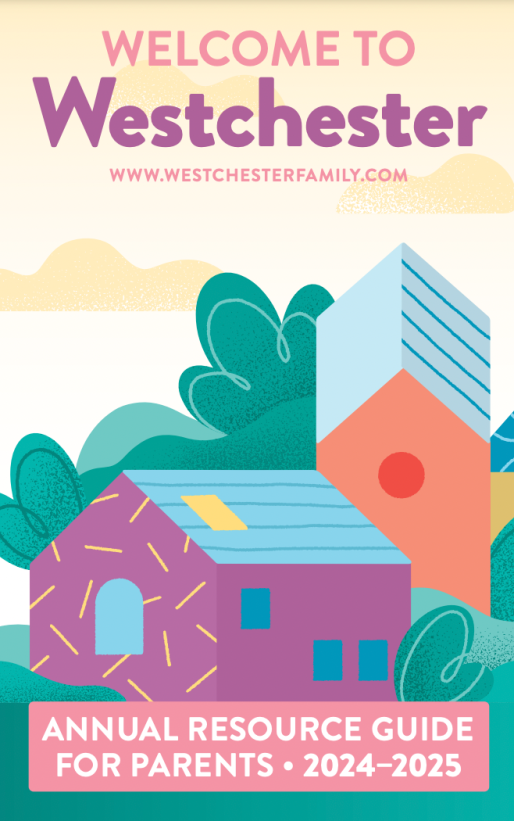
We are all home and although we are finding the blessings that come with being with our families -this is still a stressful and uncertain time. We spoke with Westchester resident Stephanie Newman, Ph.D. Clinical psychologist/psychoanalyst, and author about how to deal and talk with your kids about the coronavirus pandemic.
Virtual education! Check out our post on Coronavirus & Westchester Libraries: Helping Families Learn and Play From Home
Anxiety in simple terms
Address their anxiety head-on and keep calm. Given their access to social media and the internet, kids see, hear, and know everything. Its important to be direct and explain the current health crisis in simple terms and to do it as calmly as possible.
To younger kids, you can say something like:
This virus is, in most cases, like a cold or flu; most people will be ok. As long as you do what health officials and doctors say—washing hands a lot (And you have probably heard that if you sing your favorite song while you wash its a good way to make sure you get that 20 seconds in)—and staying indoors, no school or playdates or gatherings with large groups of people, then our family will probably be fine.
Older kids and teens might be skeptical and protest about the severity of the pandemic, the dangers of the virus. It’s important to give them a quick lesson in epidemiology by sharing something like:
While it’s true that people your age often don’t exhibit symptoms and feel fine, you are part of a family and part of a community. You might go to the gym, come in contact with, and infect someone who comes in contact with and infects someone else, who then comes in contact with and infects a third person, and so on, until the sixth person, who might come in contact with someone like your grandparent. It spreads quickly, before symptoms show. And even if you are likely to feel fine, this isn’t just an individual or family health issue. We have to keep the spread from drastically increasing so doctors and hospitals don’t get overwhelmed by too many patients at once and can take care of those in need.
Understanding the causes of anxiety. What makes all of us anxious?
Fears about health and well being and being faced with the unknown. The Coronavirus pandemic is the perfect storm of health risks, unknowns, and unpredictability. So giving kids a sense that there is some order, some routine can help. Following daily routines as much as you can: mealtimes, bedtimes, other traditions, and everyday practices, like storytimes, helps.
It’s really important to make sure you are calm before taking to your kids (they pick up on everything. anxiety even if not expressed in words can be contagious!). So take your pulse, manage your anxiety first, and then have a conversation with the kids. Telling them that this virus is generally not something that will make most people very sick, explaining that you are protecting them and the family by taking precautions like stocking up on foods and staying in and following guidelines about social
Distancing and practices and instructions about washing hands should help to relieve kids’ anxiety. You can say, “while I don’t have a crystal ball, we are doing everything we can to take care of ourselves and you and our family, and we will probably be fine. So try not to worry.”
Kids’ anxiety can manifest differently than adult anxiety. Children can get stomach aches and feel jittery (just like parents!). Kids can express fear about animals (dogs, cats, birds are common repositories for anxiety about other issues). Refusal to go to school—not so much at issue in many homes right now with containment rules—also commonly signals underlying anxiety. When children are anxious or sad, they sometimes act on feelings by playing rough, moving around non-stop, acting in ways that appear reckless or impulsive, and by arguing or having strong emotional outbursts.
Talking to kids can help them get ahead of their anxiety. Labeling fears can help. And reassuring children that you are there, listening, and doing everything you can you protect them, can also decrease anxiety. Communication and explanations help—even with the youngest kids. Take the toddler whose mother had gone to the hospital to give birth to a younger sibling and was readmitted due to complications. This child visited her mom and waved through the glass at her newborn sibling. When she got home from the hospital, the toddler kept repeating, “I am not eating applesauce, not eating applesauce.” The toddler’s eagle-eyed dad recalled that the nurses had given his child applesauce during the hospital visit. He told her, “you ate applesauce at the hospital when you saw mommy. She’s better now and will be home soon, and you don’t have to go back to the hospital.”
Putting that into words and making the connection for a child who was too young to verbalize the source of her anxiety helped reassure her.
As mentioned before, offering an older kid a direct explanation with facts such as: “only a very small percent of cases lead to severe illness and we are doing everything we can to keep you and ourselves healthy and minimize the risk of illness” goes a long way to helping preadolescents and teens understand. This reduces anxiety. Being direct by addressing the situation head-on without being alarmist is always a good idea.
Tips to remember to minimize anxiety
Explanations
Staying calm
Labeling feelings and making connections
Stating facts is helpful
Telling kids, you have followed the rules, taken precautions, for everything in your power to keep them safe, makes them feel like you—and by extension them— have at least a modicum of control over the situation.
Tips for managing adult/parent/caregiver anxiety
Stay off the TV and the internet! Avoid the news cycle! Don’t watch updates and breaking news 24-7
Talk to yourself and repeat all the same facts: most people don’t get severe illnesses. Of those that get ill, most recover.
Find on-line yoga classes and practice relaxation techniques. Many studios are live steaming. If you have to let your kids watch a video and lock yourself in the bathroom for some quiet breathing and reflection, do it. Being calm and clear-headed will help you take better care of your family.
Don’t let kids become caught up in the news cycle either. Keep news to a minimum.
Remember, model good behavior
Find ways to help others and allow your child to see. Drop off a meal for an elderly relative (leave at the doorway) or divvy items up with other shoppers at the grocery store. There’s enough to go around. One mom had the last two boxes of pasta and told her son to offer one box to an older couple she overheard discussing that the store had run out.
If kids see you practice kindness and emphasizing community values, they will be proud of you and do it too.
Stephanie Newman’s Barbarians at the PTA is now on presale on Amazon.











